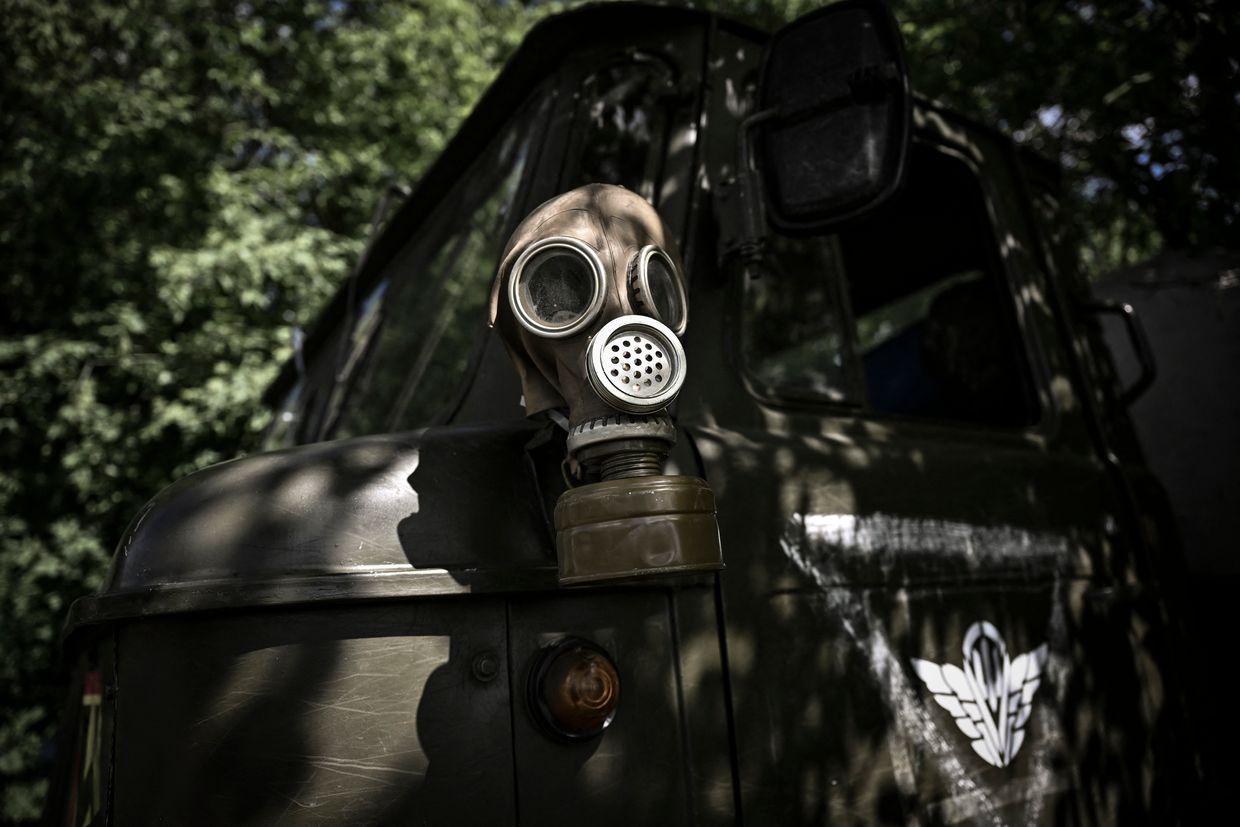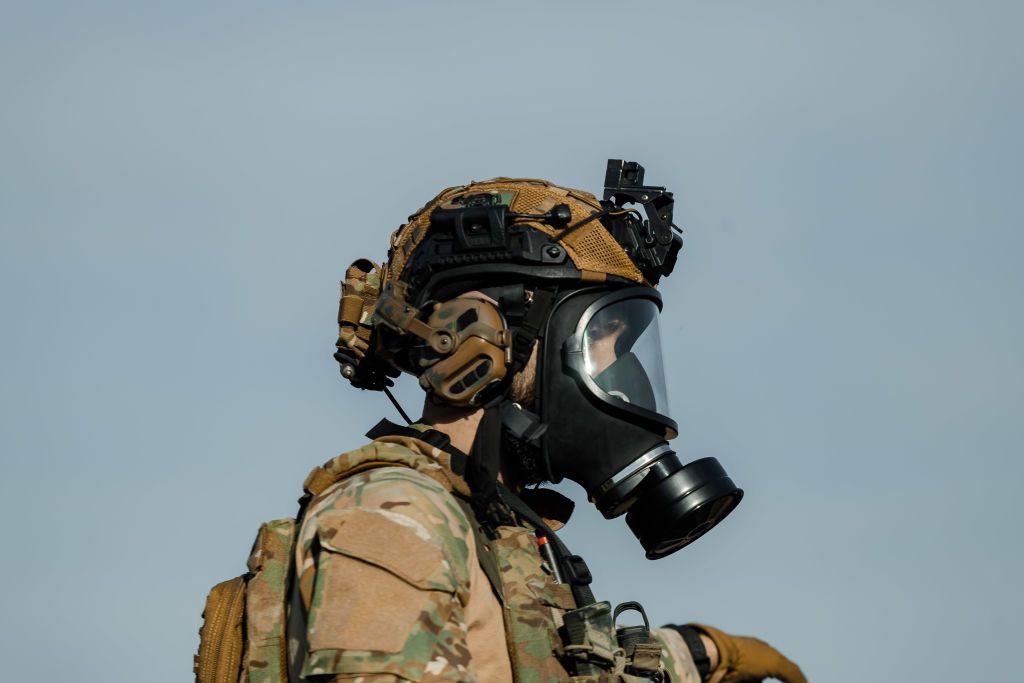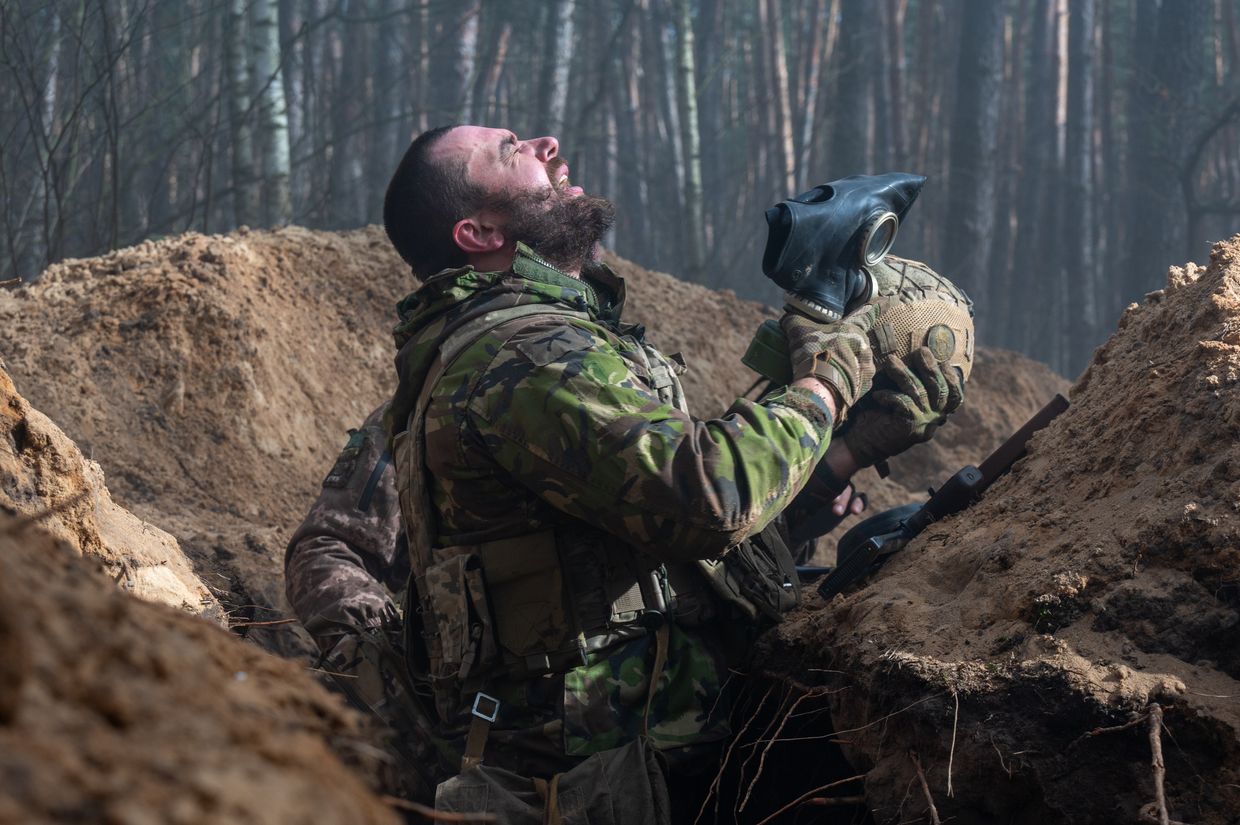"According to the participants of the performances, their goal is to remind the civilized world of the barbaric actions of Moscow, which for many years and decades has systematically violated international law," a source in Ukraine’s military intelligence agency (HUR) told the Kyiv Independent.
"I have great hope that an agreement for a ceasefire in Ukraine will be reached this weekend," German Chancellor Friedrich Merz said on May 9, shortly before traveling to Kyiv alongside the leaders of France, Poland, and the U.K.
U.K. Prime Minister Keir Starmer, French President Emmanuel Macron, German Chancellor Friedrich Merz, and Polish Prime Minister Donald Tusk will arrive in Kyiv early on May 10.
The United States embassy in Kyiv on May 9 issued a warning that Russia could launch "a potentially significant" attack in the coming days, despite Putin's self-declared Victory Day "truce."
The sanctioned oil tankers have transported over $24 billion in cargo since 2024, according to Downing Street. The U.K. has now sanctioned more shadow fleet vessels than any other country.
The sanctions list includes 58 individuals and 74 companies, with 67 Russian enterprises related to military technology.
Washington and its partners are considering additional sanctions if the parties do not observe a ceasefire, with political and technical negotiations between Europe and the U.S. intensifying since last week, Reuters' source said.
Despite the Kremlin's announcement of a May 8–11 truce, heavy fighting continued in multiple regions throughout the front line.
Putin has done in Russia everything that Luiz Inacio Lula da Silva had been against in Brazil.
The Kyiv Independent’s contributor Ignatius Ivlev-Yorke spent a day with a mobile team from the State Emergency Service in Nikopol in the south of Ukraine as they responded to relentless drone, artillery, and mortar strikes from Russian forces just across the Dnipro River. Nikopol is located across from the Russian-occupied Zaporizhzhia Nuclear Power Plant in the city of Enerhodar.
UN watchdog confirms riot control agent used on Ukraine battlefield

The Organization for the Prohibition of Chemical Weapons (OPCW) confirmed on Nov. 18 that a riot control agent known as CS has been used in Ukraine, as evidence mounts that Russia has scaled up its attacks using chemical weapons in recent months.
The United Nations watchdog OPCW's first confirmation about the tear gas usage comes as Russia has intensified its use of chemical agents since the beginning of the year to advance forward across Ukraine's front line.
Russian drones throw gas grenades into dugouts or trenches in an attempt to force Ukrainian soldiers out into the open field, making them easy prey for drone or artillery attacks.
The U.S. and the U.K. have confirmed Russia's deployment of chemical weapons against Ukrainian soldiers, slapping sanctions on Russia's troops of Radiological, Chemical and Biological Defense, their chief, Russian Defense Ministry scientific centers, and companies involved.
The Ukrainian military has reported that it recorded over 4,600 cases of Russia using gas attacks on the battlefield since the beginning of the full-scale invasion in 2022, including 323 incidents in November.

Without naming Russia nor directly confronting Moscow for violating the Chemical Weapons Convention, the OPCW said that samples from both the grenade and the soil sample retrieved from a September incident at a specific trench "contained the riot control agent 2-Chlorobenzylidenemalononitrile, known as CS."
While often used to disperse riots and considered nonlethal, the OPCW says that tear gas, including CS, is "considered chemical weapons if used as a method of warfare."
The samples — which underwent separate testing in two OPCW-designated laboratories — were collected from a trench "located along the confrontation lines with the opposing troops" in Dnipropetrovsk Oblast, according to the report.
The OPCW said in the Nov. 18 report that the watchdog's Director-General, Ambassador Fernando Arias, "expressed grave concern over the findings."
"All 193 OPCW Member States, including the Russian Federation and Ukraine, have committed never to develop, produce, acquire, stockpile, transfer or use chemical weapons," Arias said.
He stressed that the parties have declared that "any use of chemical weapons is totally unacceptable and would violate the legal norms and standards of the international community."
Earlier in May, OPCW said that Russia and Ukraine have accused each other of deploying chemical weapons, but "the information provided to the Organization so far by both sides, together with the information available to the Secretariat, is insufficiently substantiated."
Kyiv's rising concerns over unidentified gas
While Russia's usage of chemical agents has slightly decreased since August, when 447 cases were recorded by the Ukrainian military within a month, Kyiv has been concerned about unidentified gas being deployed against its soldiers.
Lacking "hundreds" of complex detectors that cost $100,000 to $600,000 to identify the chemicals used by Russian troops, the Ukrainian military has struggled to name the new or mixed types of gas to find a solution on how to protect its personnel, Ukrainian Colonel Artem Vlasiuk told the Kyiv Independent in October.
Of the 323 recorded cases of Russia's chemical attacks in October, all except 15 incidents were "unidentified," according to Vlasiuk from the Support Forces' Radiation, Chemical, and Biological Protection Command, a branch of the army responsible for inspecting chemical warfare.
The officer said that Ukraine struggled to identify the new types of gas because it lacked sophisticated high-end detector technology to diagnose beyond the few prototypes in its library — which includes CS, CN, chloropicrin, and ammonia.
It is often very difficult to send specialists to the front line for evidence collection, as it would mean risking their lives by having them walk kilometers to reach the positions. And when soldiers come under gas attacks, gathering the remains of the grenades used is usually not the priority.
The concerns over the unidentified gas come as dozens of Ukrainian soldiers interviewed by the Kyiv Independent across the front over the summer acknowledged their lack of preparedness to face chemical warfare. Many said they were only given the poor quality Soviet-era gas masks and that they do not take it to positions because they are skeptical of its effectiveness.
Often, comparing the danger of chemical agents to KAB guided-aerial bombs, artillery, and precise FPV drones, the infantrymen interviewed often downplayed the threat of gas — arguing that they had more chance of being killed or wounded by conventional arms.
At least three Ukrainian soldiers died from Russia's gas attacks, and almost 2,100 soldiers sought medical care after such incidents, according to the Support Forces. Many more could have gone unrecorded.

Most Popular

After 3 years of full-scale war in Ukraine, Europe announces plan to ban all Russian gas imports

Ukraine, Europe's ceasefire proposal includes US security guarantees, no recognition of Crimea, Reuters reports

Journalist Roshchyna's body missing organs after Russian captivity, investigation says

After Russia's deadly attack on Kyiv, Vance reposts denunciation of Zelensky

Ukrainian sea drone downs Russian fighter jet in 'world-first' strike, intelligence says
Editors' Picks

How medics of Ukraine’s 3rd Assault Brigade deal with horrors of drone warfare

As Russia trains abducted children for war, Ukraine fights uphill battle to bring them home

'I just hate the Russians' — Kyiv district recovers from drone strike as ceasefire remains elusive



